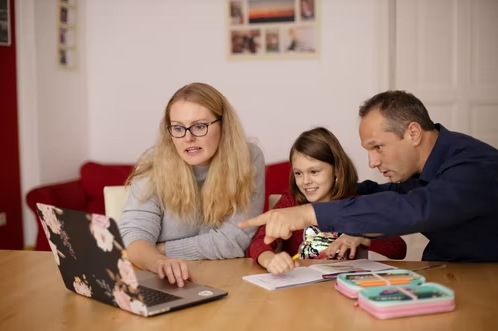
Resource Hub – Articles/Blog
IAFL Global Comparison of LGBT Laws
The International Academy of Family Lawyers, of which Vanessa Mathews is a Fellow, has published a global survey of Lesbian Gay Bisexual Transgender laws (LGBT laws), the results of which can be found here https://www.iafl.com/media/5336/2019-iafl-lgbt-survey.pdf.
The IAFL LGBT Committee stated ‘Laws affecting LGBT people vary greatly by country or jurisdiction. There are now 28 jurisdictions that accept same sex marriage, however gay sex remains illegal in many jurisdictions with the death penalty still applying in 14.
The International Academy of Family Lawyers (“IAFL”) supports all efforts towards full equality of the LGBT community throughout the world and the end to rules that unfairly discriminate against such individuals and, in many countries, criminalize countless couples because of the ones they love. There remains a lot of work to be done.
The work done by some fellows of the IAFL is having a real impact and changing for the better the lives of LGBT people. The LGBT Committee of the IAFL commissioned this survey to capitalize on the knowledge and expertise of some members for the benefit of the IAFL as a whole and the LGBT community.
The individual submissions in this survey are the work of fellows of the IAFL who have kindly donated their time and expertise to answer the same questions as set out below. Each of the contributor’s names and contact details are included.
The LGBT Committee intends that this should be a living resource. We are asking those who have already kindly donated their time to keep us informed as laws change in their jurisdictions. We have detailed submissions from 46 jurisdictions, however, there remains a good number of jurisdictions not covered where the IAFL has fellows. If your jurisdiction is not covered and you feel able to complete a survey, please get in touch with the IAFL.’
Congratulations to the IAFL LGBT committee members for preparing such a comprehensive review of comparative laws.
Establishing Co-Parents as Legal Parents of a Child

A child born to a lesbian couple will generally have a birth mother and a lesbian co-mother. The current family law system recognizes the birth mother as a legal parent.
A child born to a gay couple will often have a birth father and a gay co-father, as well as a birth mother. Alternatively, a child may have two gay co-fathers as well as a birth mother. If there is a birth father, he will be a legal parent along with the birth mother.
The lesbian co-mother or gay co-father(s) can apply to the Family Court of Australia for a parenting order, as ‘other people significant to the care, welfare and development of the child. But the lesbian co-mother and gay co-father(s) will be treated in the same way as a social parent is treated under the law, they will not be treated in the same way as a birth parent.
A person who is a later partner of a birth mother or birth father is not viewed any differently than a person in a same-sex couple who is either the partner of the birth mother or birth father or an active co-parent at the time a child is born. A partial resolution to this issue is for the co-parents to apply to adopt the child, this step will entitle the co-parent to many of the rights of a legal parent.
This issue is of particular concern to a gay couple who are both listed as co-fathers. Adoption is important in order to enable at least one parent to be a legal parent.
Children of a same sex couple relationship
The laws relating to property settlement at the end of a same sex couple relationship have recently changed. For relationships that have broken down since 1 March 2009, the Family Court now deals with all of the legal aspects of the separation, including any:
- Child Support Agreement,
- Parenting Plan or
- Parenting Order.
Property
One of the most important, and perhaps the most difficult, issue facing couples who separate is the question of ‘who gets what?’ The Family Law Act provides for property settlements same sex couples. Most property settlements are dealt with by the Federal Circuit Court or the Family Court.
The laws relating to property settlement at the end of a same sex couple relationship have recently changed. For relationships that have broken down since 1 March 2009, the Court now deals with all of the legal aspects of the separation, including any parenting agreement, property settlement and maintenance. As a result, parties to relationships that have broken down after 1 March 2009 may have more extensive entitlements than they would have had under state law.
Depending on the length and dynamic of the relationship, as well as the way that the parties have arranged their finances, a property settlement can be quite simple or involve complex negotiations.
Both financial and non-financial contributions are taken into account when determining de facto property division. The new changes to de facto laws now allow for future needs and superannuation splitting arrangements to be considered as well. The Court will consider the financial and non-financial contributions made by each party and divide the property in a manner that is just and equitable.
Strict time limits apply to commencing property settlement proceedings in a Court. You must apply for a Court Order within two years from the date your same sex couple relationship ends. It is important that you seek proper legal advice as soon as possible.
The family law property lawyers at Mathews Family Law & Mediation Specialists Melbourne understand the difficulties involved and the unique nature of individual relationships. We have extensive experience negotiating property settlements for couples who have a substantial asset pool, such as a major property/share portfolio or a family business. We understand both the emotional and the commercial implications of splitting assets. We are committed to ensuring a fair settlement is achieved as quickly as possible, we aim to reduce the time taken and therefore the cost to you.
Mathews Family Law is a leading Australian family law firm. Please contact us on +61 3 9804 7991 to speak with our family and divorce lawyers today. You can also send through your enquiry online now and we will contact you shortly.
Binding Financial Agreements between same sex couples

Parties to a same-sex couple relationship can make binding financial agreements. A financial agreement can be made either before the relationship begins at any time during the relationship or on separation. The agreement can cover matters such as:
- responsibility for expenses;
- classification of property owned by the parties as either joint or individual property;
- the categorization of property acquired during the relationship as either joint or individual;
- responsibility for debts; and
- division of property and maintenance if separation occurs.
If you have come to an agreement without legal advice, you should obtain advice before you sign anything. Specialist family law attorneys at Mathews Family Law & Mediation Specialists can provide you with the advice needed to make an informed decision before you enter into a binding financial agreement. We can also assist by drafting the agreement for you to ensure that it covers all the legal requirements that you may not have thought of.
Mathews Family Law is a Melbourne law firm. Please contact us on +61 3 9804 7991 to speak with a family lawyer from our law firm today. You can also send your inquiry online now and we will contact you shortly.
Proof of a de facto relationship
A same sex couple relationship is defined as one in which a couple lives together in a genuine ‘domestic situation’. There will be a close personal relationship between two adults whether related to one another or not, one or each of whom gives domestic support and personal care.
A court will make orders if it is satisfied that:
- the couple had a child together;
- the couple lived together for at least two years; or
- the applicant made financial or non-financial contributions or cared for the other party’s child and injustice would result if an order were not made.
Same sex de facto relationships
The laws relating to property settlement at the end of a same sex de facto relationship have recently changed. For relationships that have broken down since 1 March 2009, the Court now deals with all of the legal aspects of the separation, including any parenting agreement, property settlement and maintenance. As a result, parties to relationships that have broken down after 1 March 2009 may have more extensive entitlements than they would have had under state law.
The lawyers at Mathews Family Law & Mediation Specialists Melbourne understand the difficulties involved and the unique nature of individual relationships. We have extensive experience negotiating property settlements for couples who have a substantial asset pool, such as a major property/share portfolio or a family business. The process of a breakdown in a de facto relationship can be just as complex as divorce. We understand both the emotional and the commercial implications of splitting assets. We are committed to ensuring a fair settlement is achieved as quickly as possible, we aim to reduce the time taken and therefore the cost to you.
In addition to helping couples after a relationship breakdown, we can also provide advice to clients who may be considering entering into a de facto relationship and want to protect their assets and financial independence.
If you have recently ended a same sex couple relationship, or are considering entering into a same sex couple relationship and would like to know how these changes affect you, Mathews Family Law & Mediation Specialists is a leading family law firm in Australia, please contact us on +61 3 9804 7991 to speak with a family lawyer from our law firm today. You can also send through your enquiry online now and we will contact you shortly.
Lesbian Couples, Donors and Parenting Disputes
The Current International Trend – Recognizing Same-Sex Marriages
Throughout the world, same-sex marriage is being legalized. Eleven countries, including South Africa, Argentina, Belgium and Spain, now recognize same-sex marriages. Nine states in the United States have legalized it. Most recently, New Zealand legalized marriage between members of the same gender, a vote that was wrought with so much emotion the parliament literally erupted in song. Some Parliament members in Australia are calling for marriages conducted in New Zealand to be recognised in Australia.
Australia is not quite there yet. In 2009, the first bill for same-sex marriage was brought before the federal parliament in Australia. That bill, and the one brought in February 2010, did not pass. Most recently, in September 2012, two bills permitting same-sex marriage were defeated in both houses of the Parliament. The Prime Minister, Julia Gillard, supported the bills but allowed members of the ALP a conscience vote.
It’s not clear when, but same-sex marriage in Australia is headed toward legalization. Public opinion is strongly in favor. In a recent poll taken by the Essential Report, 54% of Australians said they thought same-sex marriage should be allowed, with only 33% saying that it should not be permitted. Interestingly, 62% of women polled supported it while only 46% of men said same-sex marriage should be legal. Once legal recognition comes, the laws applying to heterosexual marriages will also apply to same-sex marriages. For better or for worse….
Gay Marriage in Australia
Marriage between two members of the same gender is not legally recognised in Australia. All of Australia grants rights to same sex couples in de facto relationships. Some states, like NSW, Tasmania and Victoria have domestic partnership registries. In Queensland, parties can enter into a civil partnership.
In 2004, the Australian government amended The Marriage Act 1961 to define marriage as a union between a man and a woman. Despite this, in 2008 the Australian government enacted reforms which gave same-sex de facto couples the same rights and obligations as all other de facto couples. These include areas of taxation, social security, health, elderly care, employment, veterans’ benefits and child support (several of these should have a link to another page on that particular right or obligation). Many of the same laws apply regarding property division, maintenance and child custody for same-sex couples whose relationships break down. This brings the 33,714 couples who declared they are in same-sex relationships in the 2011 census that much closer to legal marriage.
Some states allow same-sex couples to register their unions officially, as civil partnerships or under another name. In Victoria, couples may register their relationships with the Registrar of Births, Deaths and Marriages. Interstate unions, however, are not recognised in Victoria.
But a de facto relationship is not the same as a marriage. In order to be recognised as a partner in a de facto relationship, a couple must meet certain criteria not required of married couples. For example, de facto couples must prove they live together “as a couple”, which is determined by a list of conditions including the length of the relationship, whether or not a sexual relationship exists, the acquisition, ownership and use of property, and whether others view them as a couple. No such requirements exist for married couples.


 Portrait of smiling young african american woman with child taking selfie at beach with her best friend. Cheerful multiethnic gay couple enjoying at beach with daughter during summer holiday. Happy smiling young mixed race sisters with cute little girl taking selfie over exotic tropical beach.
Portrait of smiling young african american woman with child taking selfie at beach with her best friend. Cheerful multiethnic gay couple enjoying at beach with daughter during summer holiday. Happy smiling young mixed race sisters with cute little girl taking selfie over exotic tropical beach.








